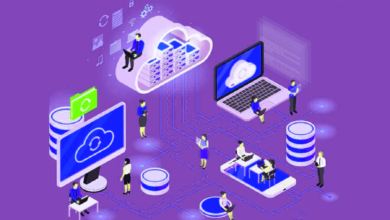From Beginner to Pro: The Ultimate Software Learning Journey in 2023

Ultimate Software Learning Journey
Welcome to the ultimate software learning journey! If you’re a beginner looking to level up your skills or a pro seeking to stay ahead of the game, this article is for you. In today’s fast-paced digital world, software skills are in high demand, and learning how to use different software programs effectively can be a game-changer in various industries. In this article, we’ll take you through a comprehensive guide on how to go from a beginner to a pro in Ultimate Software Learning Journey, including essential tips and strategies to optimize your learning process and become proficient in using different software tools. So, let’s dive in and embark on this exciting learning journey together!
Setting the Foundation: Starting as a Beginner
When you’re starting as a beginner, it’s crucial to lay a strong foundation for your software learning journey. Here are some key steps to help you get started:
- Identify Your Learning Goals: Before you begin learning any software, it’s essential to identify your learning goals. What do you want to achieve? What skills do you want to acquire? Setting clear and specific learning goals will help you stay focused and motivated throughout your learning journey.
- Choose the Right Software: With countless software programs available, it’s crucial to choose the right one that aligns with your learning goals. Research different software options and select the one that best fits your needs and interests. Look for resources that offer comprehensive tutorials, documentation, and community support to aid your learning process.
- Start with the Basics: As a beginner, it’s essential to start with the basics. Familiarize yourself with the user interface, functionalities, and terminology of the software. Explore different features, menus, and options to gain a solid understanding of the software’s core functionalities.
- Utilize Online Resources: The internet is a treasure trove of resources for learning software. Take advantage of online tutorials, video courses, documentation, and forums to deepen your knowledge. Look for reputable sources that provide accurate and up-to-date information.
Building Your Skills: Strategies for Effective Software Learning
Once you have laid a solid foundation as a beginner, it’s time to level up your skills and optimize your software learning process. Here are some strategies to help you become more proficient in using different software tools:
- Practice, Practice, Practice: Practice is key to mastering any software. Spend ample time working with the software and applying what you’ve learned in real-world projects. Experiment with different features and functionalities to gain hands-on experience and build your skills.
- Learn from Real-World Examples: Real-world examples are a great way to enhance your learning. Analyze how professionals use the software in real-world projects and try to replicate their techniques. Look for case studies, projects, and examples that demonstrate practical applications of the software.
- Collaborate with Others: Collaborating with other learners or professionals can be highly beneficial in your software learning journey. Join online communities, forums, or user groups related to the software you’re learning. Engage in discussions, ask questions, and share your experiences to learn from others and broaden your perspective.
- Stay Updated with the Latest Updates: Software programs are constantly evolving, with regular updates and new features being introduced. Stay updated with the latest updates, releases, and industry trends related to the software you’re learning. Follow the official documentation, blogs, and social media channels of the software to stay informed.
- Break Down Complex Concepts: Some software programs may have complex concepts and functionalities that can be overwhelming for beginners. Break down complex concepts into smaller, manageable parts. Focus on one concept at a time, and gradually build your understanding before moving on to more advanced topics.
Optimization Techniques

To optimize your software learning process and make the most out of your efforts, here are some techniques to consider:
- Create a Learning Plan: Having a structured learning plan can greatly enhance your software learning journey. Outline a clear roadmap with specific goals, timelines, and milestones to track your progress. A well-organized learning plan can help you stay focused, motivated, and on track.
- Use Interactive Learning Methods: Interactive learning methods can be highly effective in retaining information and building skills. Instead of passive learning through lectures or tutorials, engage in hands-on activities, simulations, and practice exercises. This will allow you to apply what you’ve learned in a practical way and reinforce your understanding.
- Take Breaks and Practice Spaced Repetition: Studies have shown that taking breaks and practicing spaced repetition can improve long-term retention and learning. Avoid cramming all your learning sessions together. Instead, take regular breaks and review previously learned material periodically. This will help solidify your knowledge and prevent burnout.
- Customize Your Learning Experience: Every learner is unique, and it’s important to customize your learning experience to suit your learning style and preferences. Experiment with different learning methods, resources, and techniques to find what works best for you. Some learners may prefer visual tutorials, while others may prefer reading documentation or participating in group discussions.
- Embrace a Growth Mindset: Learning software can be challenging, and you may encounter roadblocks along the way. Embrace a growth mindset and view challenges as opportunities for learning and improvement. Stay persistent, resilient, and open to feedback. Remember that learning is a continuous process, and mistakes are part of the learning journey.
Advancing Your Skills: Going from Intermediate to Pro
Once you have a solid foundation and have built your skills as a beginner, it’s time to advance to the next level and become a pro in using different software tools. Here are some strategies to help you level up your skills:
- Dive into Advanced Features: As you progress in your software learning journey, start exploring more advanced features and functionalities. Dig deeper into the software’s capabilities and learn how to use advanced tools, settings, and options. This will help you unlock the full potential of the software and expand your skill set.
- Learn Shortcuts and Workflow Optimization: To become more efficient and proficient in using software, learn keyboard shortcuts, and workflow optimization techniques. These can significantly speed up your workflow and boost your productivity. Familiarize yourself with commonly used shortcuts and practice using them regularly to build muscle memory.
- Experiment with Real-World Projects: Apply your skills to real-world projects to gain practical experience and build your portfolio. Choose projects that align with your interests and career goals, and challenge yourself to apply advanced techniques and functionalities of the software. This will help you develop confidence in using the software in real-world scenarios.
- Seek Professional Certifications: Professional certifications can add credibility to your skill set and demonstrate your expertise in using software tools. Look for industry-recognized certifications related to the software you’re learning and consider pursuing them. Certifications can enhance your resume and open up new career opportunities.
- Teach Others: Teaching others is a powerful way to reinforce your own learning. Share your knowledge with others by mentoring or tutoring fellow learners, contributing to online communities, or creating tutorials or blogs. Teaching others will not only solidify your own understanding but also help you become a recognized authority in the field.
Read More:Revolutionizing the Software Industry: The Latest Trends You Need to Know
Conclusion:
mastering software skills is an essential aspect of today’s digital age. Whether you’re a beginner just starting out or an intermediate learner looking to level up, the key to success lies in adopting effective learning strategies, staying committed, and continually challenging yourself.
By creating a structured learning plan, using interactive learning methods, practicing spaced repetition, customizing your learning experience, and embracing a growth mindset, you can optimize your software learning journey and make significant progress towards becoming a pro.
As you advance in your skills, remember to dive into advanced features, learn shortcuts and workflow optimization techniques, experiment with real-world projects, seek professional certifications, and teach others. These strategies will help you hone your skills, gain practical experience, and enhance your expertise.
With dedication, persistence, and a passion for learning, you can become proficient in using different software tools, and stand out in today’s competitive job market. So, embrace the journey, stay committed, and never stop learning. Happy software learning!











